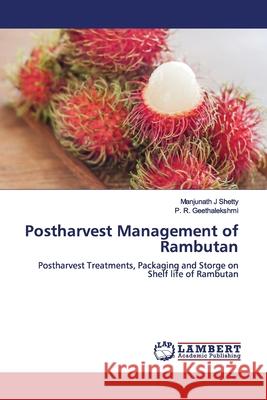Postharvest Management of Rambutan » książka
Postharvest Management of Rambutan
ISBN-13: 9786139972760 / Angielski / Miękka / 2019 / 184 str.
Rambutan, an important exotic fruit, indigenous to Southeast Asia, including Thailand, Malaysia, and Indonesia. It is a good source of vitamin C, calcium and provides fairly a good amount of niacin, iron, phosphorus, carbohydrate, protein, and fibre. The major problem in marketing of rambutan is shriveling and browning of spinterns and pericarp which makes them unattractive although the aril remains edible. After harvest, the visual appearance of rambutan will deteriorate rapidly within two or three days if left under ambient temperature. Browning due to high transpiration, high respiration rate and decay are the main causes for quality deterioration of rambutan. Even though rambutan has good demand and vast export potential, it is not a major commercial crop mainly because of its seasonal availability and short shelf life. Thus, suitable postharvest handling practices can enhance the shelf life of rambutan by preserving its nutritional quality and also extends the availability of fruits for domestic and distant markets.











